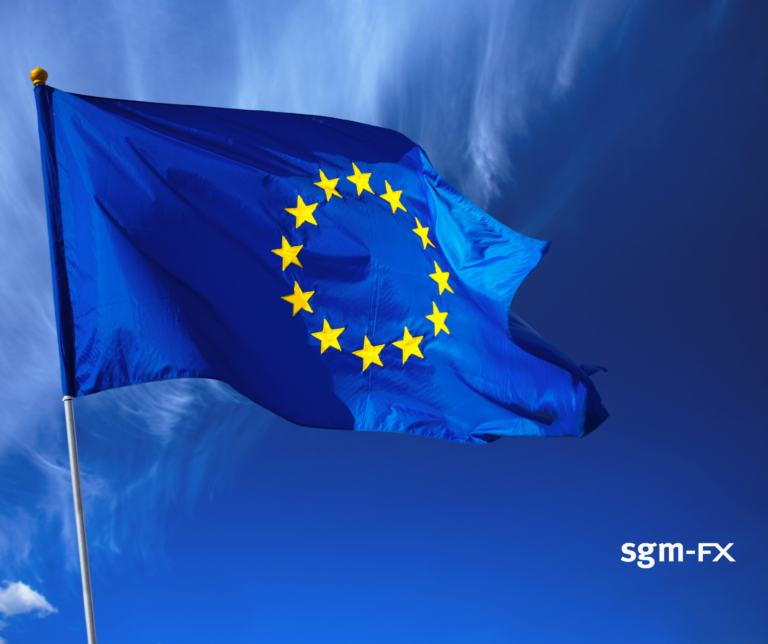
Morning Brief – Care
Yesterday evening the United Kingdom learned that its Prime Minister, Boris Johnson, had been moved to the intensive care unit of St Thomas’ Hospital following a deterioration in his condition. We wish the Prime Minister a speedy and thorough recovery from the virus. Last night it was easy to see Twitter warriors condemning the words of their peers who perhaps shared a different political persuasion or were taking a more pragmatic approach to the PM’s hospitalisation and questioning “what happens under the worst-case scenario?”. This whole debate has come to the surface in recent weeks. The debate straddles the border between efficiency, or equitability, and morality.
Financial markets often develop a reputation for being callus during these times, reacting violently to a deteriorating image of the world (frequently one that they help to produce) and making the problem itself worse. For example, financial markets’ reaction last night was not to take to Twitter to wish Boris Johnson well or to #ClapForBoris – number two on the London Twitter trends this morning. Instead their immediate reaction was to slash valuations of the Pound. Is that right? To take aim at what can arguably be labelled as a nation’s asset as a result of the deteriorating health of its Prime Minister?
Well, yes, it is, frankly. For one the intention behind a value change in foreign exchange markets is not payback or an act of malice against the nation itself. Secondly, whether or not the devaluation might help or inhibit the whole, or certain groups, of that nation wouldn’t come into the initial equation. It merely has to be a pragmatic response to an evolving situation at home or abroad. A price move is the market adjusting to meet those seeking to sell the underlying asset with those looking to buy it. The price will adjust until the open interest of those respective pairs is balanced and the market can create an efficient exchange price between them.
That’s what happened yesterday evening. The deteriorating condition of the Prime Minister created an expectation that political uncertainty could rise in the UK in a worst-case scenario and many market participants removed their open interest to expose themselves to the UK. Do not forget, that the shift down in price will to some extent compensate other investors and creditors to the UK for the more uncertain political picture increasing the ability for the UK to raise cash. Despite the uncertain health of the Prime Minister, the weaker Sterling price will make UK assets relatively cheaper than they were yesterday making investment marginally more attractive from a price perspective.
We heard from Dominic Raab last night, the UK’s Secretary of State for Foreign Affairs. Mr Raab, who many of you will know as the former Brexit negotiator, is the defacto deputy Prime Minister of the UK and would assume the responsibilities of Mr Johnson in the event of his death. Mr Raab understandably appeared worried for his colleague, superior and friend as he spoke yesterday. After all, Johnson led the Conservative Party to an 80-seat majority late last year during the November general election and has a good command over his Party’s presence in the House of Commons. Despite generating concerning headlines at times he is a source of strength for the UK currency. There is also the enduring problem of Brexit and the government is still committed to a final break and hopeful deal by the 31st December 2020 deadline. In this context, a devaluation in the GB Pound seems fair given the evolving threat to those endeavours.
In the last month, ratings agencies have taken aim at those companies they previously held in good standing. We mentioned last week there were questions being raised as to whether a rating of South African debt as junk would be morally right given it will hamper the raising of credit and make the domestic fiscal crisis worse as the lockdown takes place. The conclusion by Moody’s given that it did downgrade was clearly, yes: it is right.
It’s not just been at Moody’s and within the South African debt review team. The volume of so-called fallen angel bonds – those once awarded an investment-grade rating but have since been downgraded to junk – has ballooned. In Q1’20 alone there has been a realisation of $149bn of such downgraded bonds, almost double that reached in the peak of the 2007/8 recession and this data is diluted by the relatively benign January and February months. The rise in fallen angel assets will make survival harder for these companies as they will find it difficult to borrow for short term spending needed to keep them afloat. But the downgrade is right, moral and efficient. Remember, that for every creditor there is a debtor – public, private, or hybrid it doesn’t matter. Whilst we may be quick to forget about the cash exposure on the other side of these deals and focus on the denial of emergency funding to our distressed and beloved companies, to arbitrarily delay a downgrade is to threaten the creditor which in turn would damage the system just as severely.
Elsewhere in the market this morning risk assets are on the rise. China has reported no new deaths for the first time since the outbreak gathered pace. Death rates in Italy and Spain show signs of plateauing and the death rate is falling across the UK. Signs of a retreating virus and with the focus shifting to how to sustainably emerge from the virus equities and emerging markets have appreciated over their developed market counterparts.
Discussion and Analysis by Charles Porter

Click Here to Subscribe to the SGM-FX Newsletter
Related Insights

Daily Brief – British Pound
British Pound With GBP if not all at sea but wallowing against the crashing waves of USD strength, it is a tale of two cities for beleaguered Brits: GBP/USD dipping below the previous floor of 1.2600 but versus EUR GBP still looking firm due to the apparent divergence between the Federal Reserve and the European […]

Daily Brief – Germany
Germany Gloomy Germans is not an entirely unknown phenomenon for those of us who have toiled in Finanzplatz Deutschland or the Financial Marketplace of Germany which primarily encompasses Frankfurt, Berlin, Dusseldorf and Hamburg. Unfortunately the ZEW German Research Institute are upholding that less than noble tradition in their Economic Sentiment Indicator report that was released […]

Daily Brief – EU Stagflation
EU Stagflation With inflation blipping up and business activity turning down, the S word is back on the table. Not only manufacturing but also the services sector fell sharply in November with the Purchasing Managers Index at its lowest level this year. The EUR facing a rampant Dollar is increasingly undermined by its own weakening […]



 Humphrey Percy
Humphrey Percy